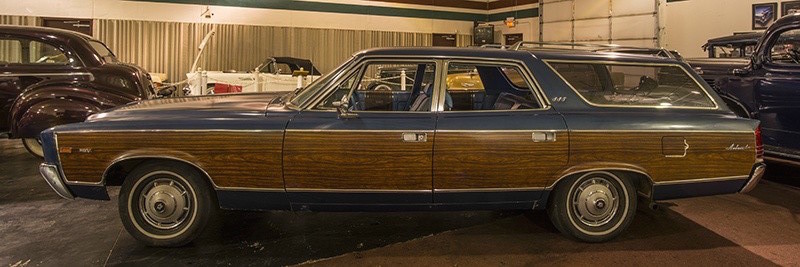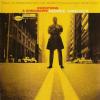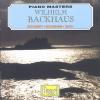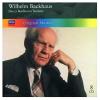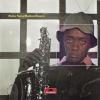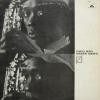-
Posts
5,203 -
Joined
-
Last visited
Content Type
Profiles
Forums
Events
Blogs
Everything posted by Late
-
Though they usually have stuff up a month or so ahead of time for pre-order.
-
Listening to Waves right now. It really is ridiculously good. There's a Japanese K2 edition of Streams. Will eventually find it, but am good with digital files for now. Oh — would love to see Paragon some day come out on compact disc. But a 1970-1978 (approx.) Rivers Mosaic big box would be ideal. Sigh.
-
Dusty Groove now carries The Giant Is Awakened ... but importCDs doesn't. (I've purchased all previous JLH reissues through importCDs with no problem.) Amazon is waiting until October 21st for release.
-
Thanks for that — some of the most positive writing I've read on Alan Shorter. Can't say I disagree too much with the assessment of Barbieri. I like his sound, and his technique is there, but his ideas don't always add up to a whole lot. Orgasm is due for another reissue. Curious that the Japanese haven't gotten to it in recent years.
-
Didn't know that about Rashied. Good to know, I suppose, that it wasn't just Shorter's (apparent) "confrontation" tendency that caused the producer switch. Side note — I didn't know (until reading the Coltrane Temple University performance liner notes) that Rashied Ali had two brothers that played drums: Muhammad and Umar. All three brothers, evidently, played with Coltrane at different times.
-
From the "Notes from The Underground" blog, on Orgasm: "It's kind of an odd album in that in the middle of recording, Alan apparently switched producers, and also had to replace some of his players." I'd never heard that before. But it runs parallel to this quote, from Wayne: “The strongest thing you can say about Alan is that he was an original, as original as you can get. He didn’t want any academic guidelines to equip him to reinvent the wheel. He was always in confrontation, or there was confrontation on the horizon… with record executives, rehearsal places, front offices, professors in school. Teachers would mark on his papers, and he would ask “Why? “ on the top of the teacher’s remarks.” The "academic guidelines" part of this quote is somewhat odd in light of the fact that Alan Shorter actually taught, though briefly, at Bennington College. Or maybe, because the stint was brief, it isn't odd. Strange, perhaps, but I hear almost no connection between Alan Shorter's writing and Ornette Coleman's writing. Past the superficial connection of the piano-less quartet, the two composers, to me, sound considerably different. Shorter often plays a bass vamp against a repeating multi-note cell, while Coleman spins out fully-fledged melodies. I also can't hear "the blues" in Shorter's work that is so often attributed to Coleman's. In a way, Shorter's writing sounds more informed by modern classical composition. (At least to my ears.)
-
“There can be nothing more frustrating for any artist than to have a brother who ‘makes it’ while he has to stay in the background — especially if the relative is a brother and the brother happens to be younger. There is only one year’s difference in age between Alan and Wayne Shorter, but Wayne was well-exposed to the jazz public before Alan was ever heard of outside of closed musical circles.” — Valerie Wilmer ================ I searched but found no thread dedicated to Al Shorter, even though he does get discussed here from time to time. While I don't find Alan Shorter the trumpet player especially notable, I do find Alan Shorter the composer particularly memorable. His melodies are strangely minimal, and yet they stick with you in the best of ways. Some questions for clarification and to start discussion: • Al Shorter only made two records under his name? • Has Orgasm only been reissued once on compact disc? • Is Wayne's Schizophrenia a direct allusion to his brother? Lastly, are you drawn in by (Alan) Shorter's musical world?
-
I was looking on eBay tonight for this title, and the one seller who currently has a copy ... used my review from Amazon for the disc's description. I guess that's a compliment. (I only have a digital copy of the album.) I wish this title had been in the 2011 SHM-CD UCCI Impulse! reissue series. Is it too far-fetched to think a Rivers Trio Mosaic set could ever happen? The only thing I'd like more is a Lucky Thompson Mosaic.
-
The writing on this album is so damn good. Both Hubbard and Hancock are incredibly focused and inspired by Sam's charts. (Listen to how Hubbard bends his pitch sharp, sharper, even a quarter pitch sharp on his "Euterpe" solo — to great effect.) And Joe Chambers is perfect for this music. Elvin Jones and Tony Williams, as perfect as they are in their own respective right, wouldn't be as ideal. (Steve Ellington certainly wouldn't be ideal.) Chambers adjusts his dynamics, in particular, for everything Hancock lays down. As I hear his playing, Chambers is coming out of Max Roach, but with less right angles and straight lines. Less metronomic rigidity. He's got to be one of the most listening-est drummers. He doesn't steer the music the way Williams does (or Art Blakey does). He reacts to the music, and then converses, not so much with his fellow musicians, but with the music itself. This album blows me away every time I play it. I hope Universal Japan sees fit to include it in their ongoing SHM-CD series. (2017 Note: They did! But it's out-of-print already.) It's well-recorded, and a fresh digital take is in order.
-
Good question. Hard to say exactly. Sometimes CD Japan lists what year the remaster comes from, but not here ... at least yet? ============= There's a boatload of "low-priced" reissues coming out December 3rd! This one (coming out in November) shouldn't be missed: http://www.cdjapan.co.jp/product/XQAM-1635 (Though of course not Blue Note nor an SHM-CD. The prefix XQAM, while not originating from Japan, is from a legit label — SSJ — out of Taiwan. Their JR Monterose reissues are spectacular.)
-
Found this on the nachosphere:
-
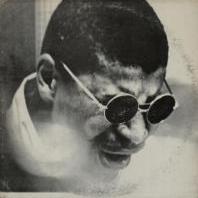
CREPUSCULE W/ NELLIE
Late replied to Joe's topic in Jazz In Print - Periodicals, Books, Newspapers, etc...
Exactly. -
A positive spin. Nice thinking. In the last five years or so, I've taken to wearing earplugs in situations where the decibel level is higher, and at a sustained high, than I'm accustomed to. This includes somewhat silly situations — like the lawnmower or the leaf blower. Certainly whenever I go to a show that isn't classical or jazz. Might be a placebo effect, but it does seem to help with ear fatigue. Gradual hearing loss, of course, is inevitable. A question for those who may know — is hearing loss ever reversible? =========== But back to the thread topic — I've begun to really enjoy the sonic signature of this series. If they're a little too loud at times, they make up for it in soundstage depth (and I simply turn the volume down). I like the Blue Note Works TOCJ series for its vinyl-like qualities, and the TYCJ and UCCQ series for their fine-tuned "digital" qualities. Digital can, and often does, sound good. I hope this series hasn't reached its end at 180 titles.
-
It seems like the next logical step would be the 1971 band with Jarrett. Some very fine live recordings out there. (I'm just not a fan of Bartz with Davis.) Still ...
-

John Coltrane - Live at Temple University 1966-official release!
Late replied to king ubu's topic in New Releases
Anyone here listening to this? My first reactions: • How incredibly logical and composed Coltrane's solos feel. That might sound like damning praise for "free" music, but I think more such music would benefit from Coltrane's type of control and sense of architecture. They (the solos) are bracing in the best of ways. His playing here, I think, is much better than on parallel recordings — I'm thinking Live in Seattle or Cosmic Music. (I like those recordings too.) • How Pharoah's solos need to be about half as long. I'm into the cry and relative rage of his solos, but they seem to exhaust themselves almost in no time. Variety? There's little. I get something from his tenor solos, and virtually nothing from his piccolo playing. The little pipe needs to go. • I dig Alice's playing, but the recording on this set does her absolutely no favors. The focus, clearly, is John Coltrane. Alice is relegated nearly to place filler — on this recording. • I can live without the extra percussion. I get it, but it takes away (for me) from Rashied Ali, still one of the most under-examined drummers. • What do you guys think of Alfred Joyner and Steve Knoblauch's solos? I find Joyner more interesting than Sanders. Other thoughts? Reactions? -
-
As soon as importCDs lists The Giant Is Awakened, I'm ordering. I'm a little surprised it isn't up for pre-order yet.
-
Both are excellent, in my opinion. Backhaus is one of those performers who remained consistent from beginning to end. For me, some of his Beethoven interpretations stand as reference recordings.
-
-
Here's a complete (?) list of the 2011 UCCI SHM-CDs on Impulse! — not just Coltrane titles, but others as well: UCCI 1015/6(2SHM CD) Coltrane,John(ts)/Live At Temple University 3200 (cancelled) UCCI 9191/5(5SHM CD) Coltrane,John(ts)/Live In Japan 7500 UCCI 9196/7(2SHM CD) Coltrane,John(ts)/Ballads 3000 UCCI 9198/9(2SHM CD) Coltrane,John(ts)/A Love Supreme 3000 UCCI 9200/1(2SHM CD) Coltrane,John(ts)/Coltrane 3000 UCCI 9202(SHM CD) Coltrane,John(ts)/Transition 1800 UCCI 9203(SHM CD) Coltrane,John(ts)/Living Space 1800 UCCI 9204(SHM CD) Coltrane,John(ts)/Sun Ship 1800 UCCI 9205(SHM CD) Coltrane,John(ts)/First Meditations 1800 UCCI 9206/7(2SHM CD) Coltrane,John(ts)/Live In Seattle 3000 UCCI 9208(SHM CD) Coltrane,John(ts)/OM 1800 UCCI 9209(SHM CD) Coltrane,John(ts)/Meditations 1800 UCCI 9210(SHM CD) Coltrane,John(ts)/Cosmic Music 1800 UCCI 9211(SHM CD) Coltrane,John(ts)/Jupiter Variation 1800 UCCI 9212(SHM CD) Coltrane,John(ts)/Stellar Regions 1800 UCCI 9213(SHM CD) Coltrane,John(ts)/Interstellar Space 1800 UCCI 9214(SHM CD) Coltrane,John(ts)/The Olatunji Concert 1800 UCCI 9216(SHM CD) Roach,Max(ds)/Percussion Bitter Sweet 1800 UCCI 9217(SHM CD) Fuller,Curtis(tb)/Soul Trombone 1800 UCCI 9218(SHM CD) Haynes,Roy(ds)/Out of The Afternoon 1800 UCCI 9219(SHM CD) Alexandria,Lorez(vo)/The Great 1800 UCCI 9220(SHM CD) Tyner,McCoy(p)/Today And Tomorrow 1800 UCCI 9221(SHM CD) Szabo,Gabor(g)/Gypsy '66 1800 UCCI 9222(SHM CD) Nelson,Oliver(as)/Sound Pieces 1800 UCCI 9223(SHM CD) Scott,Shirley(org)/Girl Talk 1800 UCCI 9224(SHM CD) Shepp,Archie(ts)/The Magic of Ju-Ju 1800 UCCI 9225(SHM CD) Sanders,Pharoah(ts)/Karma 1800 UCCI 9226(SHM CD) Jackson,Milt(vib)& Ray Brown(b)/Memphis Jackson 1800 UCCI 9227(SHM CD) Jamal,Ahmad(p)/The Awakening 1800 UCCI 9228(SHM CD) White,Michael(vn)/Spirit Dance 1800 UCCI 9229(SHM CD) Coltrane,Alice(p)/World Galaxy 1800 UCCI 9230(SHM CD) Shepp,Archie(ts)/Attica Blues 1800 UCCI 9231(SHM CD) Barbieri,Gato(ts)/Chapter One:Latin America 1800 UCCI 9232(SHM CD) Sanders,Pharoah(ts)/Love In Us All 1800 UCCI 9233(SHM CD) Brown,Marion(as)/Vista 1800 UCCI 9234(SHM CD) Lateef,Yusef(ts)/Club Date 1800 I wonder why the Temple University title was cancelled. Anyone here read anything about it?
-
I like how this Oliver Nelson thread has morphed into a discussion of disco. I'm there! For me, one of the finest disco records is Arthur Russell's 24-->24: If ever there were a case argued for "avant disco," this would be the record I'd put before the judge. Any fans of Russell here?
-
Sold! In the post tomorrow. Thanks.
-
I am letting go of my Elvin Mosaic. • box - like new • booklet - like new • 8 discs - like new (discs 7 and 8 still sealed) • $230, includes U.S. shipping • International shipping at cost • PayPal OK
-
Correct. The Japanese disc is in (exquisite) stereo. (Album cover above for illustrative purposes only. ) "Elegy for A Duck" — Ron Carter and Grady Tate are The Dang on that track. Really something else.
_forumlogo.png.a607ef20a6e0c299ab2aa6443aa1f32e.png)
